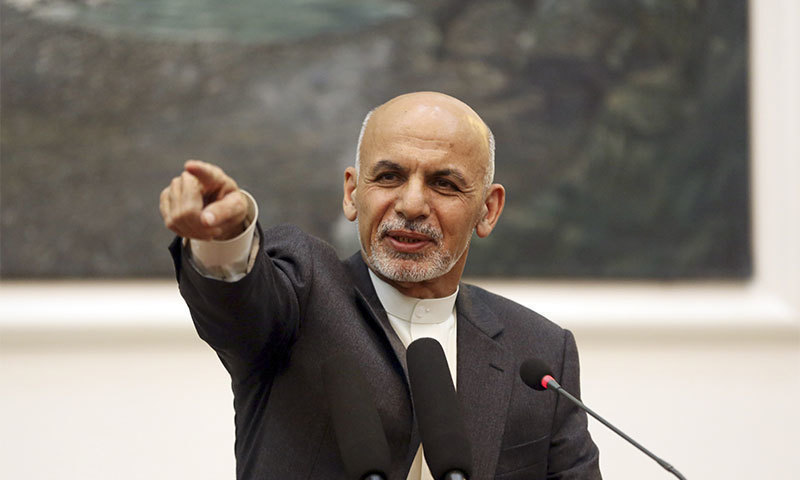
Ghani takes over in Afghanistan
After months of political uncertainty and allegations of electoral fraud, Ashraf Ghani has been inaugurated as the President of Afghanistan. This is the last step in the country’s first democratic transfer of power in its modern history. As part of a deal brokered by the United States, his closest rival, Abdullah Abdullah, has been appointed the government’s Chief Executive Officer (CEO). The new office has powers similar to those of a prime minister and its creation is designed to defuse the tensions arising from the disputed election process. While it is hoped that the power-sharing deal will lessen the disunity between the north and south of the country, it is possible that it could exacerbate ethnic divisions.
The arrangement has already revealed its fragility. At the last minute, Abdullah threatened to boycott the inauguration over several grievances. Thankfully, both camps were able to work out their differences and the inauguration went ahead as planned. If co-operation between Ghani and Abdullah is maintained and strengthened, the future prospects for the unity government remain positive.
Ghani’s first task will be to repair relations with the US. Kabul’s relationship with Washington soured towards the end of President Karzai’s term in office, as he refused to sign a bilateral security agreement. Towards the end of his term he also became increasingly critical of Western involvement in his country, going as far as to suggest that the US did not want peace in Afghanistan.
The new president has spent most of his adult life abroad, including a considerable period in the US. He and Abdullah have both indicated that they want Washington to remain engaged in the country. They have shown a willingness to sign the bilateral security agreement, allowing US forces to remain in the country beyond 2014. This act would serve to reset the relationship and show that both leaders are likely to engage with the US to improve Afghanistan’s security situation.
Another key task will be to overcome disunity between the various ethnic and tribal groups. Worryingly, Ghani appears keen to highlight his ethnic Pashtun identity. He attended the inauguration ceremony wearing a turban, a symbol of the country’s south. He has also recently begun using his tribal name, Ahmadzai, to display his affiliation with the Pashtun tribe. Abdullah, on the other hand, has a mixed Pashtun-Tajik ethnic identity and has significant connections to the Tajik ethnic group in the north. He was a prominent member of the Tajik-dominated Northern Alliance and had a close relationship with its former leader, Ahmed Shah Masood. Due to this history, he has strong support amongst Tajiks and other Dari speaking ethnic groups in the north.
Tensions between the largest ethnic group, the Pashtuns, and the second largest, the Tajiks, is well established. The Pashtun have held almost uninterrupted political control over Afghanistan for centuries. The most recent break in their control took place between 1992 and 1996, when a Tajik President was installed as the leader of The Islamic State of Afghanistan. At the end of this period, the Pashtun Taliban toppled the Tajik President and assumed control over the entire country.
As the office of the CEO is answerable to the President, it is possible that Abdullah will come to be seen as a mere advisor to Ghani. The Tajik community is likely to view this as the continued dominance of the Pashtun over the affairs of the country and as a continuation of Pashtun authority. The effectiveness of the unity government in bringing the various ethnic groups together will be wholly dependent upon the ability of the two men to work together.
There is a lot at stake in the power-sharing arrangement. If the two leaders are able to foster a close, effective working relationship, this could overcome the animosity between the Tajiks in the north and the Pashtun in the south. On the other hand, if the deal fails to elicit close co-operation between the two leaders, it has the potential to further weaken ethnic unity. The uneasiness between Ghani and Abdullah suggests that the national unity government is by no means stable. National unity in Afghanistan will probably remain an elusive goal.
— Mervyn Piesse, Indian Ocean Research Programme, FDI
-
CHINA DIGEST
-
 ChinaChina Digest
China’s PMI falls for 3rd month highlighting challenges world’s second biggest economy faces
ChinaChina Digest
China’s PMI falls for 3rd month highlighting challenges world’s second biggest economy faces
-
 ChinaChina Digest
Xi urges Chinese envoys to create ‘diplomatic iron army’
ChinaChina Digest
Xi urges Chinese envoys to create ‘diplomatic iron army’
-
 ChinaChina Digest
What China’s new defense minister tells us about Xi’s military purge
ChinaChina Digest
What China’s new defense minister tells us about Xi’s military purge
-
 ChinaChina Digest
China removes nine PLA generals from top legislature in sign of wider purge
ChinaChina Digest
China removes nine PLA generals from top legislature in sign of wider purge
-
-
SOUTH ASIAN DIGEST
-
 South Asian Digest
Kataragama Kapuwa’s arrest sparks debate of divine offerings in Sri Lanka
South Asian Digest
Kataragama Kapuwa’s arrest sparks debate of divine offerings in Sri Lanka
-
 South Asian Digest
Nepal: Prime Minister Dahal reassures chief ministers on police adjustment, civil service law
South Asian Digest
Nepal: Prime Minister Dahal reassures chief ministers on police adjustment, civil service law
-
 South Asian Digest
Akhund’s visit to Islamabad may ease tensions on TTP issue
South Asian Digest
Akhund’s visit to Islamabad may ease tensions on TTP issue
-
 South Asian Digest
Pakistan: PTI top tier jolted by rejections ahead of polls
South Asian Digest
Pakistan: PTI top tier jolted by rejections ahead of polls
-






Comments